Healthy living and ageing
eHealth and Wellbeing
We apply our Artificial Intelligence technologies to promote a healthy life and active ageing
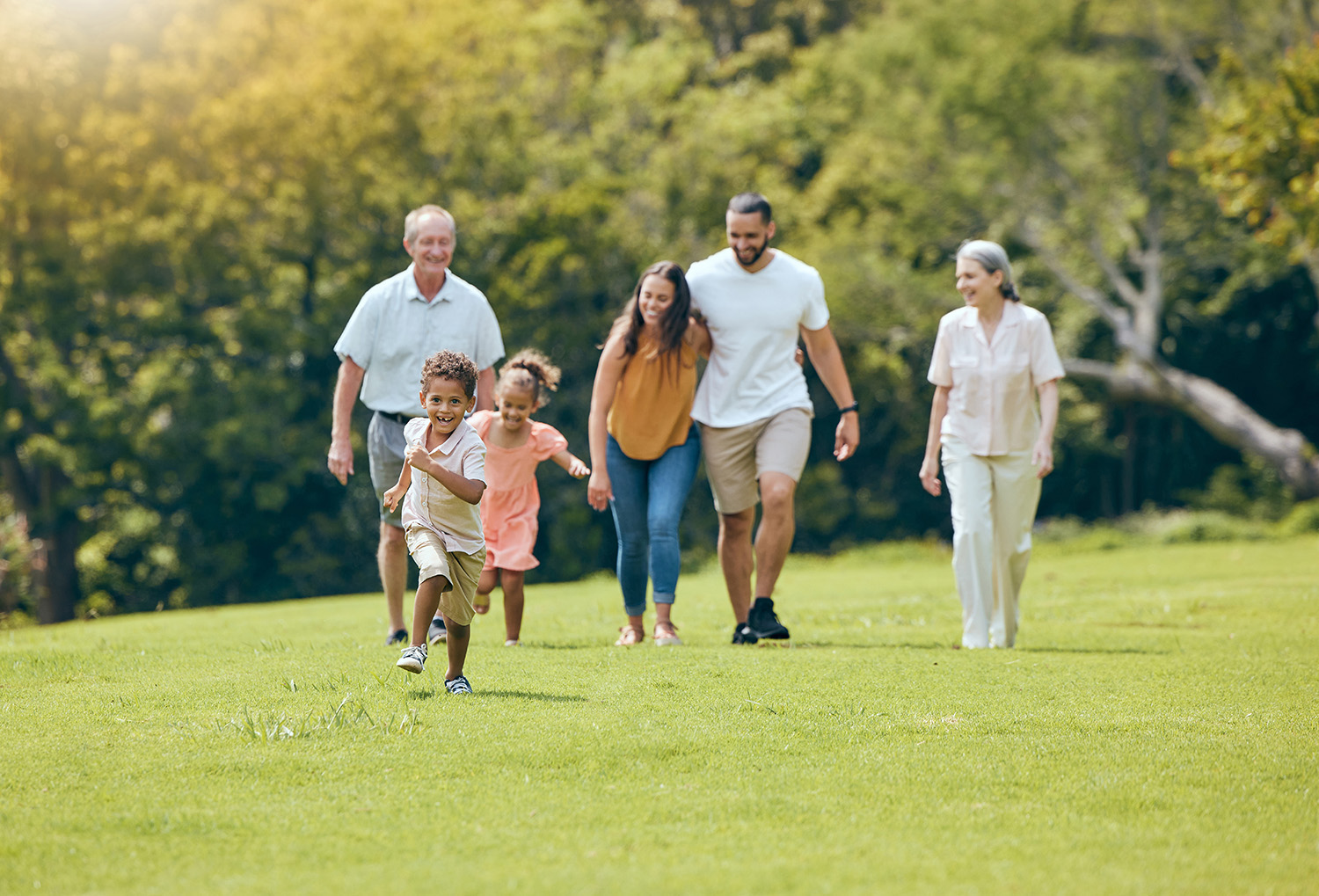
The population in the world is ageing dramatically and therefore the economic and social effort required to maintain the quality of life is being increased. Assistive technologies are progressively expanding and present great opportunities, however, given the sensitivity of health issues and the vulnerability of older individuals some considerations need to be considered.
As the result of more than 20 years of experience in the health digital sector, VICOMTECH presents DigiHEALTH Suite, a life library of digital solutions that have been co-designed with the private sector (companies), academia, governments and end-users by following a continuous reflexive approach.
The digital suite presents eight digital solutions that:
- minimise digital barriers for older people (authentication system based on face recognition and digital voice assistant)
- facilitate active and healthy living (wellbeing assessment module, recommendation system, and personalized nutritional system)
- mitigate specific impairments (heart failure decompensation, mobility assessment and correction, orofacial gesture trainer).
Contact us to explore the following digital solutions:
- Face recognition solution
- Digital voice assistante and natural language processing
- Wellbeing assessment for active and healthy living
- Recommendation system for wellbeing
- Personalised nutritional guidance
- Hearth failure decompensation predictive model
- Gait analysis for motion quality assessment
- Orofacial gesture training
- Wearable device data capture system
- Patient tracking and data capture system
- Diet recommendation system based on artificial intelligence
Face Recognition Solution
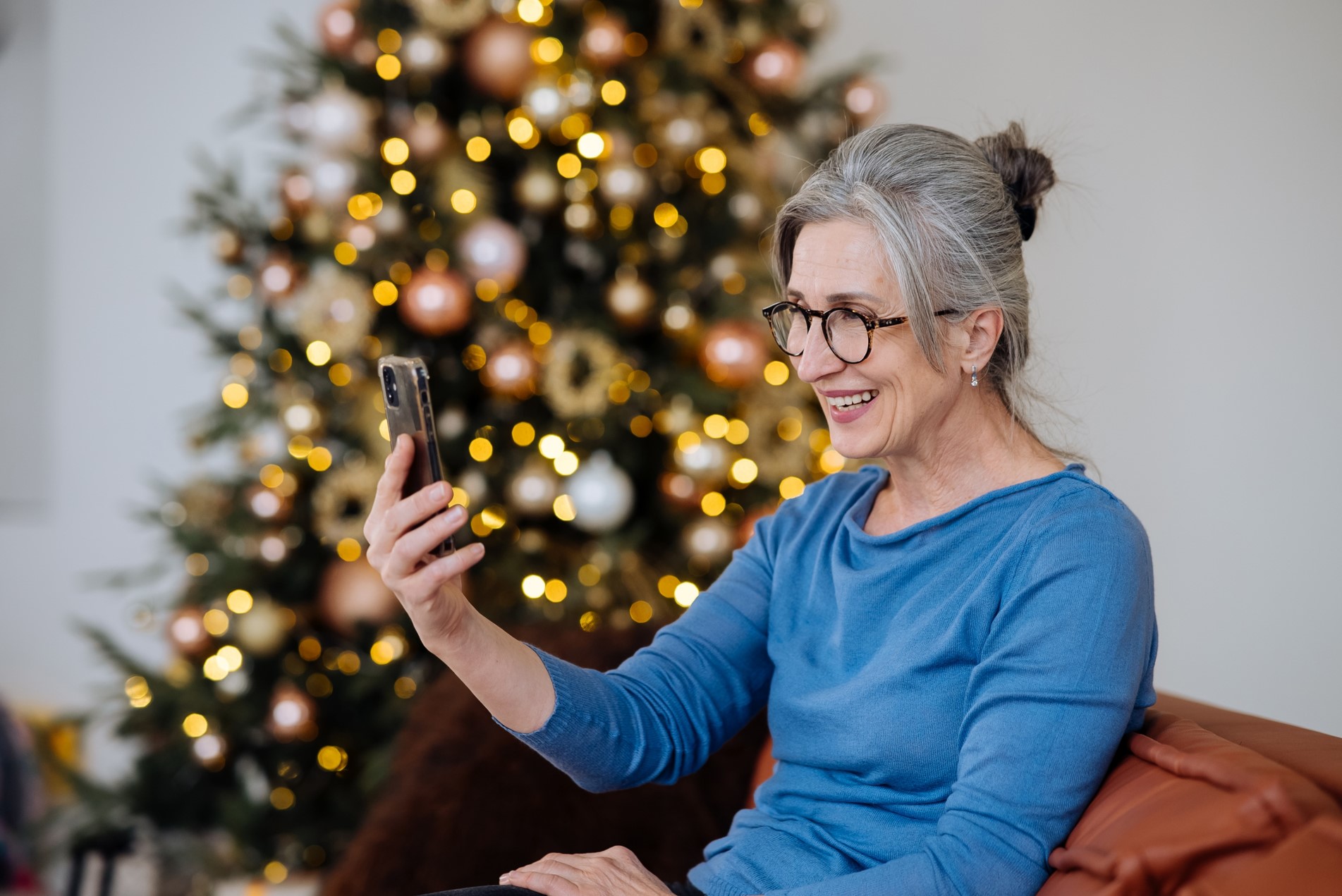
Older adults especially need user-friendly and secure face enrolment and verification mechanisms, as they will probably have reduced interaction capabilities, and might need the assistance of caregivers. We develop software solutions to assist the user during the facial biometric data extraction process,
preventing impostors from accessing sensitive user data (i.e., medical data). We provide feedback, if required, to improve the pose or the capturing conditions, and automatically capture the biometric data in the optimal moment to get the best recognition result.
Related Software Libraries
- FACECOG
Related scientific publications
- Designing Automated Deployment Strategies of Face Recognition Solutions in Heterogeneous IoT Platforms
- Optimal deployment of face recognition solutions in a heterogeneous IoT platform for secure elderly care applications
- Assistive Technologies for Supporting Wellbeing of Older Adults.
- Social robotic application to support active and healthy ageing
Digital Voice Assistant and Natural Language Processing
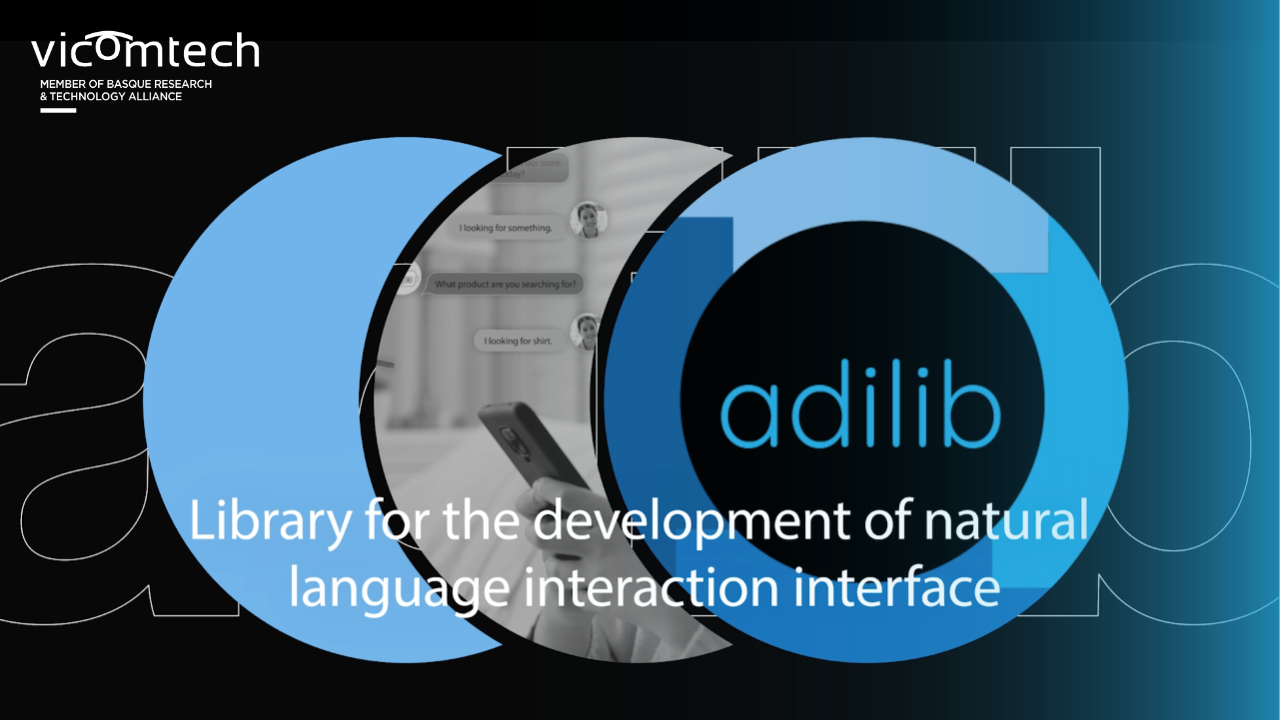
As the healthcare industry gradually adopts the concept of industry 4.0 (and/or 4IR) the introduction of healthcare Robots in health related services for older adults represents an emerging, viable and promising intervention. Indeed, digital assistants are tremendously useful in the sense that: they can check daily general health and wellbeing aspects, they can be used as powerful data captures by interacting naturally with end-users, they can provide feedback to older people suggesting them exercises or healty habits.
Related Software Libraries:
- ADILIB
Related Scientific Publications:
- Evaluating Novel Speech Transcription Architectures on the Spanish RTVE2020 Database
- Hospital Readmission Prediction via Keyword Extraction and Sentiment Analysis on Clinical Notes
- RESIVOZ: Dialogue System for Voice-based Information Registration in Eldercare.
Related research projects:
Wellbeing Assessment for active and healthy living
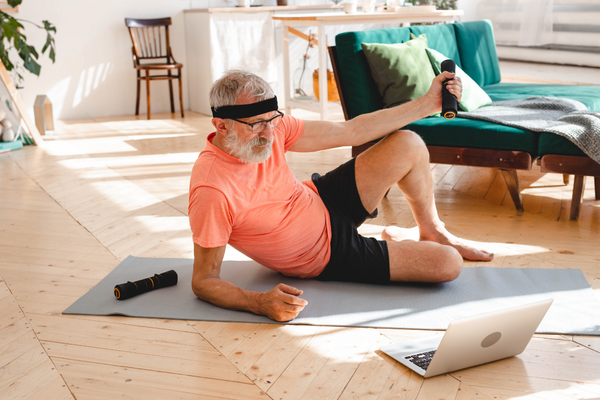
Our digital solution assesses daily activities in terms of regular condition (RC), abnormal condition (AC) and critical condition (CC). The computational engine uses end users records of last 15 days and evaluates the 'normality' of the results by using the z-score. The results are validated by end-users and will be displayed on a dashboard that has been designed with research purposes.
We have developed multiple wellbeing assessment solutions at clinical and health care contexts. They have been successfully applied for accompanying old people at home, for ensuring wellbeing, or preventing cognitive problems or even for detecting anomalies at earlier stages of Alzheimer.
Related Software Libraries and IP assets:
- AROA- Digital Suite for virtual coach
- VATH- Visual Analytics Toolkit for healthcare
Related scientific publications:
- Behavioral anomaly detection system for the wellbeing assessment and lifestyle support of older people at home
- User Centered Virtual Coaching for Older Adults at Home Using SMART Goal Plans and I-Change Model
Related research projects:
Recommendation system for wellbeing
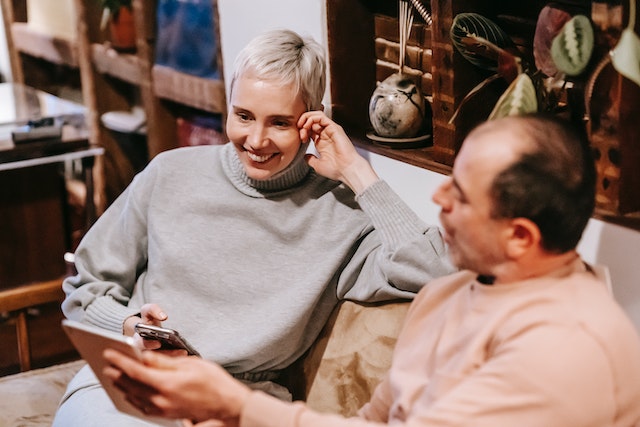
The current trend of population aging poses several challenges to nowadays society. The necessity of promoting health is becoming more and more urgent. In this sense, different approaches have been carried out in the last years to promote wellbeing and ensure healthy lives. One of the most popular technique is the use of healthy plans with specific objectives which usually gets along with recommender systems. The decision support system for wellbeing is a decision support system that provides personalized wellbeing recommendations for older adults. At the current stage of development, the recommender system provides outcomes with respect to daily physical activity, sleep records and liquid intake.
Relates scientific publications:
- Personalized Nutritional Guidance System to Prevent Malnutrition in Pluripathological Older Patients.
- Key Factors and AI-Based Risk Prediction of Malnutrition in Hospitalized Older Women.
- Adaptative Clinical Decision Support System using Machine Learning and Authoring Tools
Related research projects:
- SHAPES
- OROIPEN
- INCAR
Personalised nutritional guidance
Several factors may contribute to an older individual suffering from nutrient deficiencies and other imbalances. For example, sensory disturbances,
functional disabilities, and social isolation that typically accompany aging all increase the likelihood that a person will develop unhealthy eating habits.
This digital tool facilitates personalized nutritional guidance to prevent malnutrition in pluri-pathological older patients.
The solution digitalizes nutritional guidelines that have been developed to fulfil the nutritional needs derived from certain pathologies. The digital tool
can facilitate the daily work in real clinical scenarios where hundreds of patients need to be attended every day. Current solutions are designed
around a single pathology or specific scenario, but NUTRIGEP works at a pluripathologic scenario where several challenges need to be considered
jointly.
Related scientific publications
- Personalized Nutritional Guidance System to Prevent Malnutrition in Pluripathological Older Patients.
- Key Factors and AI-Based Risk Prediction of Malnutrition in Hospitalized Older Women
Related research projects:
- NUTRIGEP
- AISEJAN
Heart failure decompensation predictive model
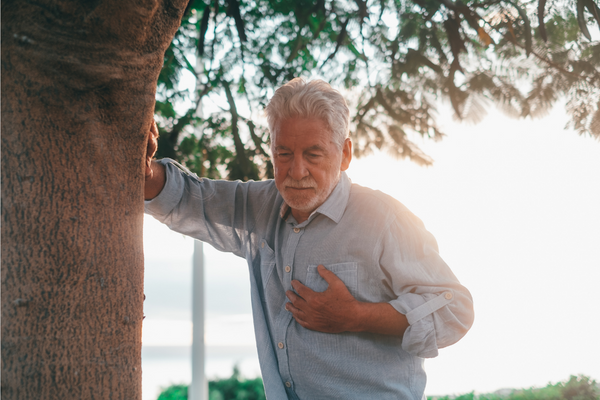
Current estimates are that nearly 6.5 million Americans over the age of 20 have heart failure. One major study estimates there are 960,000
new heart failure cases annually. Not only is heart failure a major problem affecting many people, heart failure is also a major killer.
HFPred is a service that estimates the probability of suffering a cardiac decompensation in the next 7 days in patients monitored with heart
failure. In addition to the baseline data, it requires as input the values monitored over the previous 7 days for weight, diastolic/systolic blood
pressure, blood oxygen saturation, heart rate and the response to an 8-question questionnaire.
Related scientific publications
Related research projects
- INCAR
Gait Analysis for Motion Quality Assessment
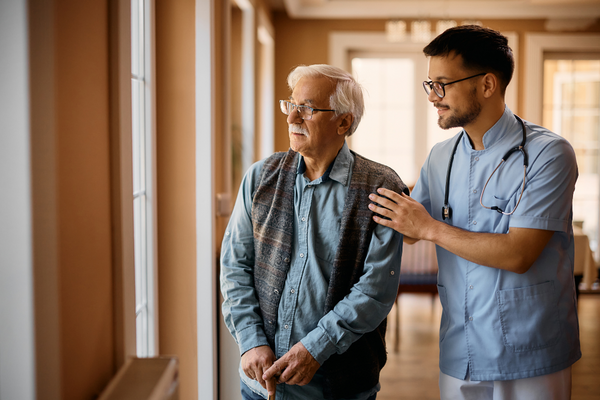
The promotion of physical activity for the elder population living in nursing homes is an important tool to prevent the premature decline in their fitness and
autonomy. Specialized tools are required to help the caregivers to motivate, guide and assess the practice of exercise.
A digital solution that estimates the gait parameters of older adults in nursing homes from data captured using low-cost devices, namely inertial measurement
units. The solution estimates relevant gait parameters from a motion capture of the resident while walking 12 meters in a straight line, using his/her regular
walking aid (cane, walker, parallel bars, etc.). This solution requires to use only one or two inertial sensors located at the ankles of the individual/older adult to
output a set of objective metrics that allow to perform a follow-up of the subject’s gait performance. The resulting metrics are posted with a FHIR- compliant message to the Shapes ecosystem.
Related scientific publications
- Preliminary evaluation of an objective assessment approach from session data in exoskeleton-assisted gait rehabilitation after SCI
- Feasibility Assessment of Muscle Force Estimation Using the Myo Armband During Arm Curl Training
Related research projects
Orofacial Gesture Training
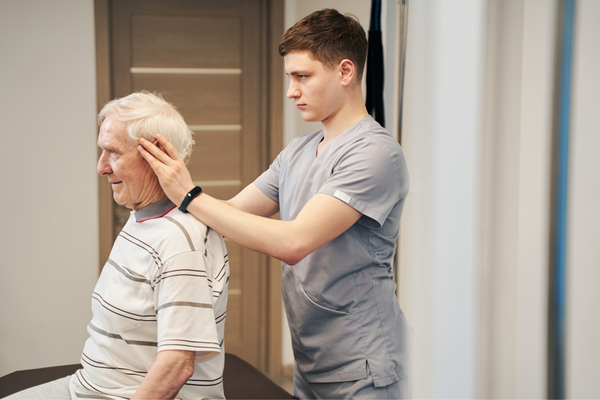
It is applicable to anyone that wants to exercise the orofacial musculature to improve overall facial muscle tone, correct tongue posture, decrease muscular tension, and establish a lip seal and nasal breathing pattern. This kind of exercises can benefit people with disorders such as sleep apnoea, bruxism, temporomandibular joint disorder, malocclusion.
During an orofacial rehabilitation session, the trainee would exercise these gestures several times, starting from a neutral facial expression until the maximum gesture intensity is reached and then relaxing again.
Related Software Library:
- OROFACE
Related scientific publications:
- Efficient Multi-task based Facial Landmark and Gesture Detection in Monocular Images
- The SHAPES Smart Mirror Approach for Independent Living, Healthy and Active Ageing
- Knowledge-Driven Dialogue and Visual Perception for Smart Orofacial Rehabilitation
Related research project:
Wearable device data capture system
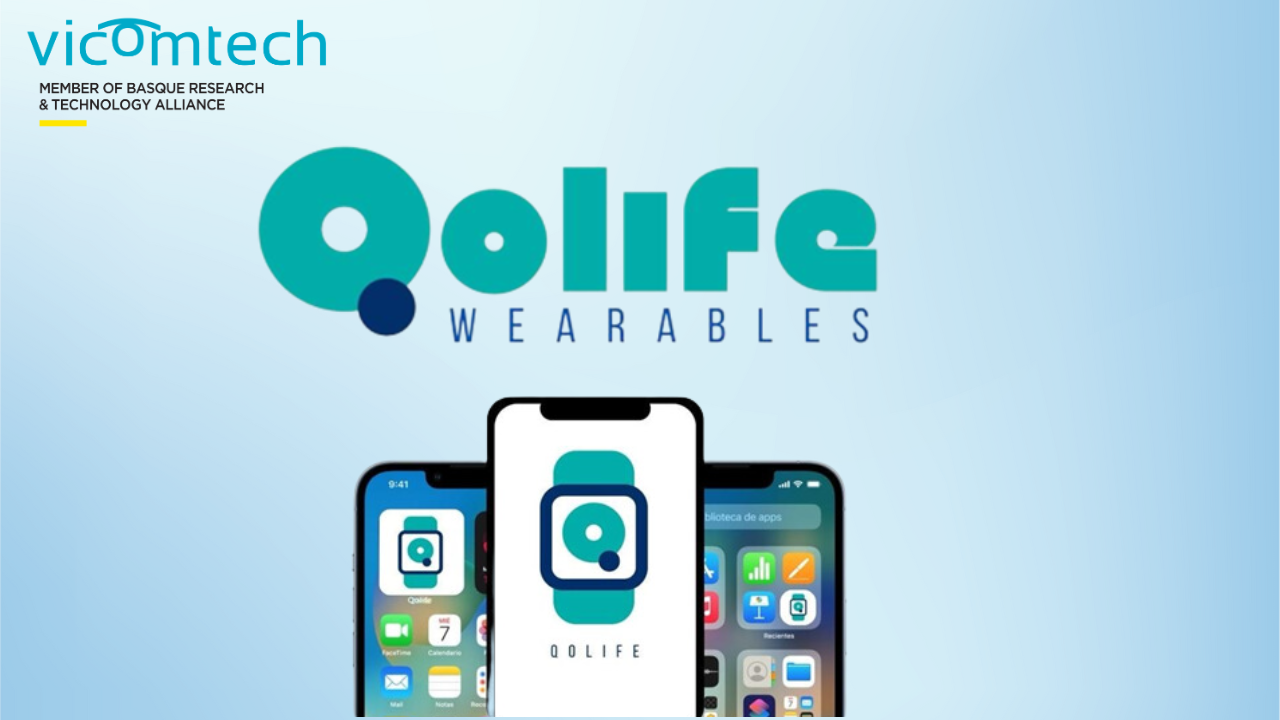
It offers a complete system for capturing and storing data from different brands of portable (or wearable) devices, facilitating the connection with different commercial brands. The data is stored on a centralised and secure server, which also provides a common data model, facilitating the analysis of the collected data. The use of this solution allows participating users to use their own devices, facilitating the scalability of the solution, as well as its extensive use. In this way, the management of multiple devices is facilitated from a single application as the brand and model of each wearable can be selected, providing access to a central repository of information and an administrator interface for visual analytics. It is a living solution that will be updated over time to include different models and new devices.
Related publications:
- ‘MHealth Apps Using Behavior Change Techniques to Self-Report Data: Systematic Review’
- ‘A Platform for User Empowerment through Self Ecological Momentary Assessment / Intervention’
- ‘OBINTER: A Holistic Approach to Catalyse the Self-Management of Chronic Obesity’.
- ‘Gaining Insight from Physical Activity Data Using a Similarity-Based Interactive Visualization (Accepted for Publication)’
Related asset:
- REWARD - Toolkit for capturing real-world data using handheld devices
Related projects:
This digital solution has been developed and tested by Vicomtech in:
Patient tracking and data capture system
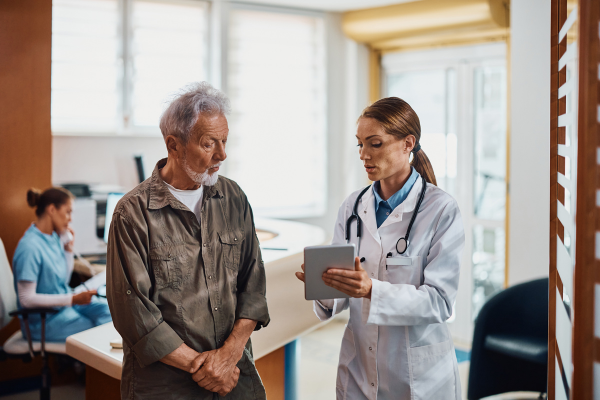
This solution provides an application for tracking and reporting user data in terms of quality of life. The data collected includes weight records and user-reported activity and diet questionnaires, in addition to wearable data capture performed automatically. To increase user adherence to the app and improve user reporting, the app features an automated notification system and adherence techniques that promote behavioural change.
It also includes an administrator tool for professionals, allowing them to manage users, modify their diet and weight goals, and adjust the challenges or targets to be met. In addition, it generates statistics and visualisations of application usage for complete user tracking.
Related publications:
- ‘MHealth Apps Using Behavior Change Techniques to Self-Report Data: Systematic Review’
- ‘A Platform for User Empowerment through Self Ecological Momentary Assessment / Intervention’. London, Great Britain.
- ‘OBINTER: A Holistic Approach to Catalyse the Self-Management of Chronic Obesity’.
- ‘Gaining Insight from Physical Activity Data Using a Similarity-Based Interactive Visualization’.
Related asset:
- REWARD - Toolkit for capturing real-world data using handheld devices
Related projects:
This digital solution has been developed and tested by Vicomtech in:
Diet recommendation system based on artificial intelligence that adapts to the needs and preferences of older people

Nutrition plays a fundamental role in the health and well-being of all people, being an essential element to maintain a healthy lifestyle throughout all stages of life. A balanced and adequate diet provides essential nutrients, which are necessary to maintain a strong immune system, sufficient energy, optimal cognitive function and overall health. Good nutrition not only influences physical appearance, but also mental and emotional health, affecting mood and quality of life. In addition, a proper diet can prevent and control a wide variety of chronic diseases, such as obesity, type 2 diabetes or cardiovascular diseases.
For all these reasons, this solution combines a diet prescription system that returns the optimal combination of dishes according to the basal metabolic rate and the daily macro foods necessary for each person; as well as a recommendation system that learns about user preferences and adapts increasingly better to their tastes. In this way, two differentiated recommendations are returned that refer to nutritional needs and tastes or preferences. The optimization and reinforcement learning systems designed allow continuous adaptation to changes in the needs or context of the elderly person.
Related scientific publications
- Key Factors and AI-Based Risk Prediction of Malnutrition in Hospitalized Older Women
- Personalized Nutritional Guidance System to Prevent Malnutrition in Pluripathological Older Patients
Related research projects
Pedia CHAT – Pediatric triage tool designed for first-time mothers and fathers

Currently, the digitalization of healthcare is transforming the way medical professionals and families manage health care. Digital tools that collect clinical information in a structured way and provide guidance on the next steps to take help improve quality of life, optimize healthcare resources, and bring medicine closer to a more personalized and preventive approach.
In this context, Pedia CHAT emerges as a virtual assistant specifically designed for first-time mothers and fathers. Through guided questions adapted to the child’s context, the tool gathers information about the child’s symptoms and behaviors, assessing their severity based on pediatric triage criteria. Based on this assessment, Pedia CHAT provides clear recommendations on whether to contact emergency services, go to the emergency room, or consult pediatric staff.
Pedia CHAT is presented as an innovative solution that supports decision-making in child health situations, offering clear and reliable guidance to families. Thanks to its structured and personalized approach, it contributes to safer and more efficient pediatric care, helping first-time parents act with confidence and peace of mind when faced with their children’s symptoms.
Intelligent System for Personalized Exercise Prescription

Personalized exercise prescription is defined as the process of designing a training plan tailored to each person’s sports background, health conditions, goals, and objectives. In this context, an intelligent system for personalized exercise prescription has been developed.
The system is based on a knowledge model built from the experience and recommendations of physical activity and sports professionals, and implemented through active ontologies with rules that allow the generation of consistent and tailored recommendations.
This solution has also been validated throughout the entire data management flow and in the generation of the digital service. Based on each user’s data, the system generates training plans adapted to their individual characteristics, balancing strength and cardio work, regulating frequency and intensity, and ensuring proper progression over time. It also considers user preferences regarding exercising in social or individual settings, as well as the facilities and resources available in their municipality. In this way, it promotes the adoption of sustainable and effective physical activity habits, maximizing health benefits and supporting long-term adherence to training programs.
Related Research Projects:
- Noteworthy Projects
Looking for support for your next project? Contact us, we are looking forward to helping you.







